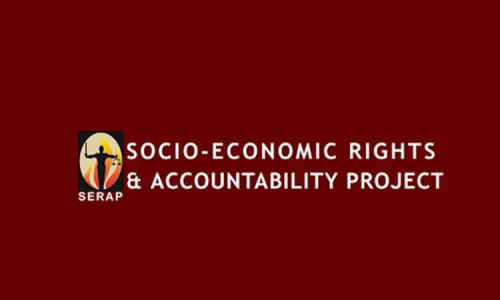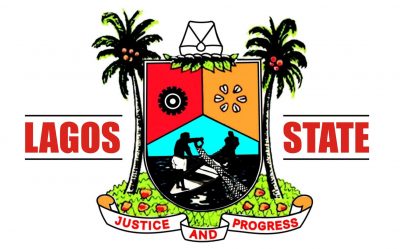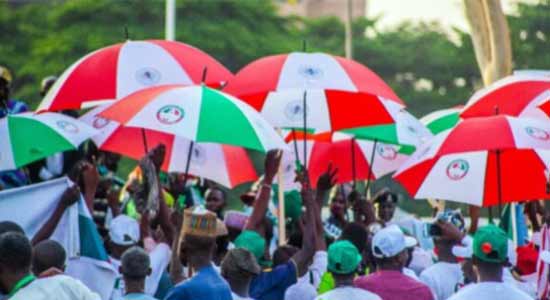COURTROOM NEWS COVER STORY 11/09/2022
SERAP, Students Sue Buhari Over ASUU Strike

The Socio-Economic Rights and Accountability Project and five university students have filed a lawsuit against the President, Major General Muhammadu Buhari (retd.), over the prolonged strike of the Academic Staff Union of Universities.
SERAP and the students are asking the court to “declare unlawful the refusal by the Federal Government to meet ASUU’s demands, which has occasioned the prolonged strike action and violated the students’ right to quality education.”
Joined in the suit as Defendants are the Minister of Labour, Employment and Productivity, Chris Ngige, and Attorney-General of the Federation and Minister of Justice, Abubakar Malami, SAN.
The suit followed the apparent lack of commitment by the Federal Government to implement the agreements with ASUU, and to end the over seven-month-old industrial action by the union, and the threat by the government to implement its “no work, no pay” policy.
In the suit number NICN/ABJ/269/2022 filed last week at the National Industrial Court, Abuja, SERAP and the students are seeking: “an order directing President Buhari and Mr Ngige to immediately implement all the agreements with ASUU in order to end the strike action and violation of the students’ right to quality education.
According to SERAP and the students: “Disruption of classes undermines both the quality and duration of students’ education. This situation has aggravated existing disparities in access to university education in the country, further marginalising economically disadvantaged parents and students.
The suit filed on behalf of SERAP and the students by their lawyer, Tayo Oyetibo, SAN, read in part: “The Federal Government has failed to respect, protect, promote and fulfil the right to quality education, and the right to freedom of association through the principle of collective bargaining.
“Although, Nigeria has ratified several human rights treaties, which guarantee the right to quality education of Nigerian students, the Federal Government has, over the years, refused to meet the demands by ASUU, and to address the poor environment in the country’s universities.
“The students, who are co-claimants in the suit, are Dongo Davou; Oyebode Babafemi; Ejie Kemkanma; Peter Aniefiok; and Imam Naziru. They are students of Plateau State University, Obafemi Awolowo University, University of Port Harcourt, University of Uyo, and University of Ibadan, respectively.
“The failure to implement the agreements with ASUU is also a fundamental breach of the right to education without discrimination or exclusion, as strike actions continue to penalize economically disadvantaged parents who have no means or capacity to send their children to private schools.
“Equal access of Nigerian children and young people to quality and uninterrupted education including at the university level would contribute to producing citizens who are fundamentally equal and people who actively participate in society.
“It would enable people to enjoy the rights as well as fulfil obligations that are associated with citizenship.
“SERAP had earlier advised President Buhari to recover the N105.7 billion stolen public funds and utilise same in addition to specified percentages of the N3.6 billion feeding and travell allowances for the President and the N134 billion allocated to the National Assembly in the 2022 Budget to meet the legitimate demands by ASUU.
“Apart from being a right in itself, the right to education is also an enabling right. Education is a public good.”
“Education creates the ‘voice’ through which rights can be claimed and protected, and without education people lack the capacity to achieve valuable functioning as part of the living.
“Nigeria’s public tertiary institutions have continued to experience a steady decline. The quality of public education offered is low and standards have continued to drop. The learning environment does not promote effective learning.”
“The right to bargain freely with employers with respect to conditions of work constitutes an essential element in freedom of association, and trade unions including ASUU should have the right to seek to improve the living and working conditions of those whom they represent.
“The Federal Government has continued to ignore the plights of teeming undergraduates, who have been denied access to quality education due to the lingering strike action occasioned by the continued reluctance of the Defendants and their agents to implement the agreements with ASUU.
“The breach of the agreements by the Federal Government clearly provides a reasonable basis for ASUU members to exercise their right to strike as a last resort. It is unlawful to punish the members simply for peacefully exercising their right.
“Nigerian students in public universities have suffered many years of disruption as a result of the failure of governments to address the root causes of strike action by ASUU and to faithfully implement the agreements reached with the union, leading to devastating consequences on the right to equal and quality higher education.
“The Federal Government has breached the explicit right to equal access to higher education of Nigerian children and young people, as provided for by article 13(2)(c) of the International Covenant on Economic, Social and Cultural Rights.
“Providing Nigerian children and young people equal access to education should be the core public service functions of the Federal Government.
“Owing to poor funding, poor remuneration system, unconducive learning and training environments in public tertiary institutions in Nigeria, ASUU after a protracted strike action concluded the FGN-ASUU 2009 Agreement in October 2009.
“According to reports and available evidence, the FGN-ASUU Initial 2009 Agreement sought among others, the resolution of the following underlying issues: proper funding of public tertiary institutions to the tune of N1.3 trillion to be implemented across a period of 4 years between 2009 and 2013.
“It was agreed that the N1.3 trillion funding of Government-owned tertiary institutions would span between years 2014 and 2018. It was also agreed that the sum of N200 billion Naira would be released to public tertiary institutions in 2013 while a tranche of N220 billion Naira was to be paid yearly between 2014 and 2018.
“However, according to reports, only the sum of N200 billion Naira was released in 2014 and no other sum, apart from the sum of N20 billion naira released in 2019 was paid to the institutions.
SERAP and the students also sought other reliefs.
No date has been fixed for the hearing of the suit.



